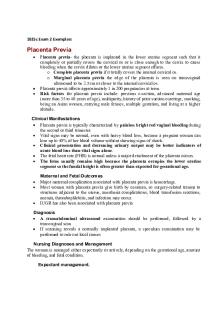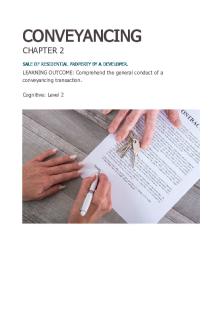Q4- Bethics-WK2 - Lecture notes 2 PDF

| Title | Q4- Bethics-WK2 - Lecture notes 2 |
|---|---|
| Course | Ethics |
| Institution | Don Honorio Ventura Technological State University |
| Pages | 3 |
| File Size | 81.7 KB |
| File Type | |
| Total Downloads | 160 |
| Total Views | 194 |
Summary
WEEK 2I. Evaluating LearningWritten WorksPart I.C 1. This obligation means that the company operations should be within the bounds of the law.A. Philanthropic B. Economic C. Legal D. EthicalB 2. This term is defined as an effort to strike a balance between maintaining the needs of thepresent and the...
Description
WEEK 2 I. Evaluating Learning Written Works Part I.
C 1. This obligation means that the company operations should be within the bounds of the law. A. Philanthropic B. Economic C. Legal D. Ethical
B 2. This term is defined as an effort to strike a balance between maintaining the needs of the present and the ability of future generations to meet their needs through the preservation of ecosystem which they depend on. A. Intellectual property B. Sustainability C. Corporate social responsibility D. Philanthropy
C 3. You are aware that e fellow employee uses drugs on the job. Another friend encourages you to confront the person instead in informing the supervisor. What do you do? A. You confront the alleged user and tell him either to quit using drugs or quit his work. B. You elect to tell your supervisor that you suspect an employee is using drugs on the job without asking the person involved. C. You speak to the alleged user and encourage him to get some help. D. Report the matter to employee assistance as your conclusion is final.
B 4. You work for a company that has implemented a policy of a smoke-free environment. You discover employees smoking in the restrooms of the building. You also smoke and don’t like having to go outside to do it. What do you do? A. You confront the employees and tell them not to stop. B. You contact your human resource representative and ask him/her to observed the other areas of the office. C. You have to mind your own business and ignore the situation and later join the group. D. You spread what you know in the office.
(NOT to be answered) 5. Your co-worker is copying company-purchased software and taking it home. You know a certain program cost Php 35,000.00, and you have been saving for a while to buy it. What do you do?
D 6. Which of the following statements is true?
A. All actions deemed unethical by society are also illegal. B. The concerns of what is legal and ethical do not change over time. C. The terms social responsibility and ethics should be used interchangeably. D. Companies can be both profitable and socially responsible.
C 7. Which of the following is true of ethics? A. Ethical conflict increases when employees feel that their company is exerting pressure on them to engage in unethical conduct. B. Professional codes of ethics are informal rules and standards that describe what the company expects its employees. C. Codes of ethics need to be very detailed so that they consider every situation. D. The development of a code of ethics should include only a firm's executives and board of directors.
D 8. _____ is the extent to which businesses meet the legal, ethical, economic, and voluntary responsibilities placed on them by their stakeholders. A. A code of conduct B. A code of ethics C. Business ethics D. Corporate citizenship
D 9. The fact that environmental responsibility requires trade-offs means that it: A. instigates trade relations. B. facilitates international competition. C. generates profits. D. imposes costs on both business and the public.
A 10. Which of the following is true about the right to choose? A. It ensures that consumers have access to a variety of products and services at competitive prices. B. It provides the assurance of only satisfactory quality and not service at a fair price. C. It provides the assurance of only service at a fair price and not satisfactory quality. D. It ensures the fair treatment of consumers who voice complaints about a purchased product. Part II. TRUE 1. In some situations a company action can be legal, yet still unethical. FALSE 2. Mang Damian, the meat department manager at a supermarket. He believes he has no ethical problem in selling rabbit meat and labeling it as chicken, so long as no customer gets sick.
TRUE 3. Juaning Dela Cruz is a corrupt individual who is out to manipulate and trick people, even when Juaning’s actions do not harm people, she is still unethical and affects the company’s image in her attitude. FALSE 4. The concept of social responsibility holds that business organizations have a legal obligation to be good citizens.
TRUE 5. Whether to use corporate resources for personal use is an ethical dilemma that falls into a habit area for many people. TRUE 6. The company has a legal obligation to help the community through worthwhile projects which are beneficial to the people. FALSE 7. Corporate social responsibility is defined as concerted initiative to contribute to sustainable development through efforts that are economically, socially and environmentally beneficial to stakeholders. FALSE 8. Since all ethical standards are universally accepted, they do not depend on the culture in which a business operates. TRUE 9. Most companies are introducing eco-friendly and marketing efforts to satisfy consumer demand and improve their images. TRUE 10. Sustainability involves conducting activities in such a way as to provide for the longterm well-being of the natural environment, including all biological entities....
Similar Free PDFs

Q4
- 3 Pages

Lecture notes, lecture 2
- 3 Pages
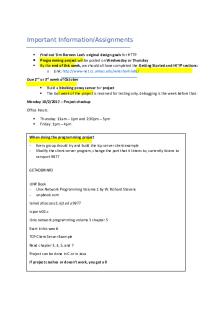
2 - Lecture notes 2
- 5 Pages

Practical Research 2 Q4 Mod6
- 33 Pages

Lecture notes, lecture Chapter 2
- 11 Pages
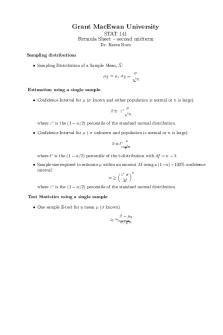
Lecture notes, lecture formula 2
- 1 Pages

2 Biodiversity - Lecture notes 2
- 33 Pages
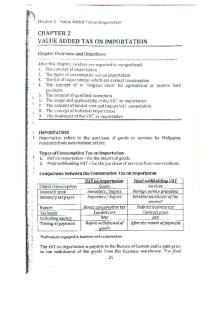
Chapter 2 - Lecture notes 2
- 30 Pages
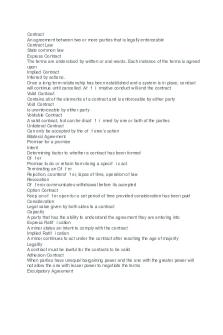
Blaw 2 - Lecture notes 2
- 4 Pages
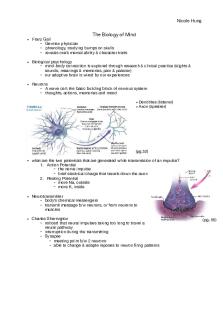
Chapter 2 - Lecture notes 2
- 4 Pages
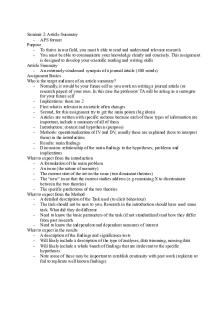
Seminar 2 - Lecture notes 2
- 2 Pages
Popular Institutions
- Tinajero National High School - Annex
- Politeknik Caltex Riau
- Yokohama City University
- SGT University
- University of Al-Qadisiyah
- Divine Word College of Vigan
- Techniek College Rotterdam
- Universidade de Santiago
- Universiti Teknologi MARA Cawangan Johor Kampus Pasir Gudang
- Poltekkes Kemenkes Yogyakarta
- Baguio City National High School
- Colegio san marcos
- preparatoria uno
- Centro de Bachillerato Tecnológico Industrial y de Servicios No. 107
- Dalian Maritime University
- Quang Trung Secondary School
- Colegio Tecnológico en Informática
- Corporación Regional de Educación Superior
- Grupo CEDVA
- Dar Al Uloom University
- Centro de Estudios Preuniversitarios de la Universidad Nacional de Ingeniería
- 上智大学
- Aakash International School, Nuna Majara
- San Felipe Neri Catholic School
- Kang Chiao International School - New Taipei City
- Misamis Occidental National High School
- Institución Educativa Escuela Normal Juan Ladrilleros
- Kolehiyo ng Pantukan
- Batanes State College
- Instituto Continental
- Sekolah Menengah Kejuruan Kesehatan Kaltara (Tarakan)
- Colegio de La Inmaculada Concepcion - Cebu


